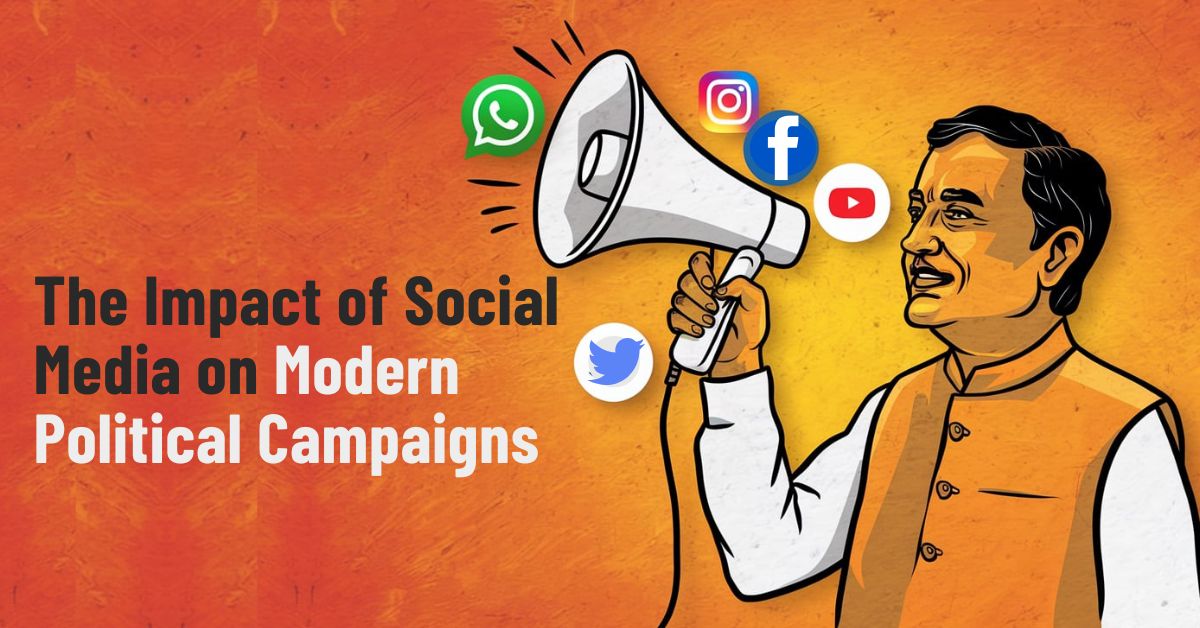Why Has Social Media Affected Political Campaigns?
In recent years, the political landscape has been dramatically reshaped by the influence of social media. During the 2020 U.S. presidential elections, for example, an estimated 223 million Americans were active on social media, highlighting the platform’s significant reach and potential influence on the electorate. This blog post explores the profound impact of social media on political campaigns, dissecting both its advantages and challenges, and offering insights into how it might continue to evolve.
The Rise of Social Media in Political Campaigns
The past two decades have witnessed an explosion in social media use worldwide. Key platforms like Facebook, Twitter, Instagram, and TikTok have transformed from niche social networking sites to essential communication tools used by millions globally. Their growth has been staggering:
- 2004: Facebook launches, soon to become the world’s largest social networking site.
- 2006: Twitter is founded, revolutionizing real-time communication.
- 2010: Instagram provides a new visual avenue for sharing content.
- 2017: TikTok launches, quickly gaining popularity for its short-form videos.
These platforms have become instrumental in political campaigns, offering new ways for candidates to reach and engage with voters directly.
How Social Media Has Changed Political Engagement
Direct Communication with Voters
Social media allows politicians to bypass traditional media gatekeepers and connect directly with voters. Platforms such as Twitter and Facebook enable candidates to broadcast their messages, engage in real-time discussions, and humanize themselves by sharing personal stories and behind-the-scenes content. This direct line to voters can build a sense of intimacy and transparency that is hard to achieve through other mediums.
Increased Voter Participation
Social media has democratized political information, making it accessible to a broader audience. By lowering barriers to entry, it has engaged previously apathetic or marginalized demographics, especially younger voters who are more likely to use these platforms. Features such as hashtags (#Vote or #Election2020) organize political discussions and encourage broader participation by making it easy to find information and join movements.
The Amplification of Political Messages
The viral nature of social media ensures that political messages can spread quickly and widely. A single tweet, post, or video can reach millions within hours, significantly amplifying a campaign’s reach and impact. This amplification can work both ways—positive messages can expand a campaign’s influence, but negative messages or gaffes can equally harm a candidate’s reputation.
The Advantages of Using Social Media in Campaigns
Social media provides several strategic advantages in political campaigns that were previously unattainable.
Cost-Effectiveness:
Compared to traditional media like television or print, social media offers a more cost-effective way to reach large audiences. Platforms offer various advertisement options, allowing campaigns to choose the best strategy tailored to their budget.
Targeting Specific Audience Demographics:
With detailed user data, social media platforms allow campaigns to target specific demographics with precision, ensuring their messages reach the intended audience. This targeted approach increases the efficiency and effectiveness of campaign strategies.
Real-Time Feedback:
Social media provides real-time feedback from voters, enabling campaigns to adapt strategies swiftly in response to public opinion or current events. This immediacy allows more dynamic and responsive campaigns, capitalizing on trends or addressing controversies as they arise.
Challenges and Controversies of Social Media in Politics
Misleading Information and Fake News
Despite its benefits, social media’s rapid information dissemination can also spread misinformation and fake news. This misinformation can shape public opinion based on falsehoods, posing a significant threat to fair democratic processes. Campaigns may need to dedicate significant resources to monitoring and correcting misinformation.
Echo Chambers and Polarization
Social media algorithms tend to show users content that aligns with their interests and beliefs, creating echo chambers that reinforce existing opinions. This polarization can lead to an increasingly divided political climate, making compromise and dialogue more challenging.
Privacy Concerns and Data Use
Political campaigns extensively use social media data to hone their strategies, which raises ethical concerns about voter privacy. The collection and use of personal data for micro-targeting voters have been contentious, prompting debates about the need for stricter regulations.
Case Studies of Social Media Impact on Political Campaigns
Numerous political campaigns have effectively leveraged social media, acting as case studies for its potential impact.
“Social media was our secret weapon,” said a campaign manager from the 2018 U.S. midterm elections. “It allowed us to reach young voters in innovative ways that traditional media couldn’t match.”
One notable example is Barack Obama’s 2008 presidential campaign, which successfully mobilized young voters through social media engagement. Similarly, Donald Trump’s use of Twitter was instrumental in shaping public discourse during the 2016 elections.
The Future of Social Media in Political Campaigns
The future of social media in political campaigns promises to be dynamic, with emerging trends like artificial intelligence (AI), virtual reality (VR), and more interactive platforms potentially transforming engagement methods. Campaigns might soon employ AI-driven chatbots to interact with voters or use VR to create immersive experiences that deepen voter connection.
As social media continues to evolve, campaigns will need to keep pace, leveraging the latest technologies to engage an increasingly tech-savvy electorate. The potential for innovation in this space is vast, offering exciting opportunities and challenges alike.
Conclusion
Social media unequivocally shapes modern political campaigns, offering unprecedented opportunities for direct voter engagement and efficient message dissemination. However, it also presents challenges such as misinformation and polarization. Understanding the complex dynamics of social media is crucial for any modern political campaign. What do you think about social media’s role in politics? Share your thoughts!
Call to Action: Engage with Us
Stay informed on the latest insights in political strategies and social media trends by subscribing to our blog! Follow us on social media for more updates.







